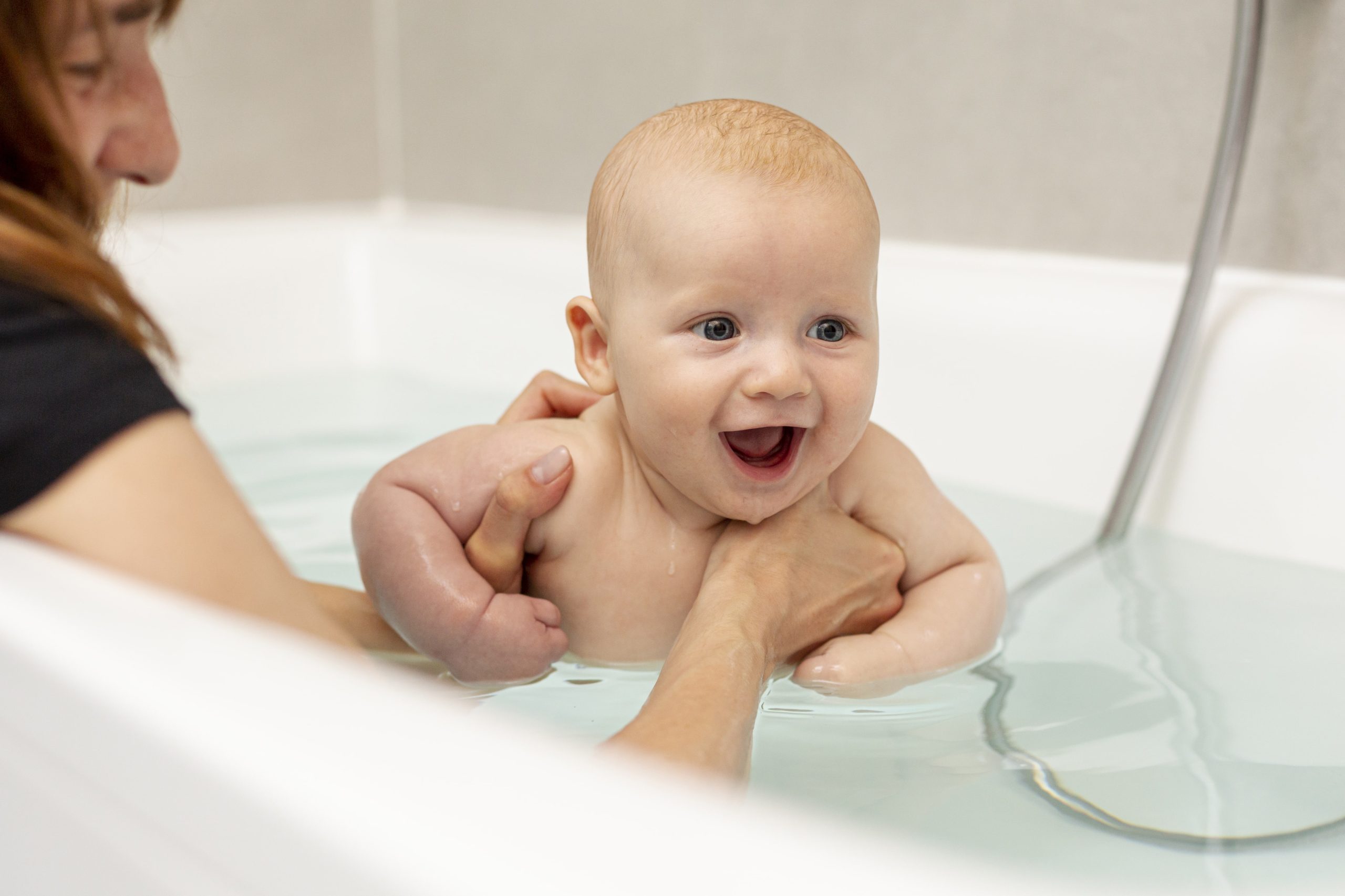Babies who have been in the water for nine months of pregnancy are said to continue to feel very comfortable in the water after birth. It is popular to teach babies to dive and exercise in the water. What do the experts think? What should parents know when going to the pool with their baby?
In the bath or in the pool?
It is best to bathe babies in their own bath, where the water is constantly changed, doesn’t stagnate, and there are no additional water disinfectants. In the case of the swimming pool, if mums are sure about all the disinfectants, trust the staff, don’t fear that the child might catch a cold and the baby likes the water exercise, they can attend the pool classes.
Every child must learn to swim – sooner or later it will become a task for parents. However, there are some children who are panic-stricken about water. Such babies should not be tortured and forced to swim. In the case of bathing at home, it is said that a 2-month-old baby remembers one day, a 3-month-old one week and a 6-month-old two weeks. So if your baby doesn’t like or is afraid of something, try again after a while, when the unpleasant experience has been forgotten. But be creative. Babies and children are smart, but through games, parents can make even the most unpopular activities cute.
The pros and cons of exercising in water
The biggest advantage is positive emotions, communication with mum or dad and contact with the environment. Exercising in the water helps you relax and return to the womb and is a preventive measure against colds. However, it does not accelerate motor development, which is what parents usually expect. Moreover, if the baby is carried or dunked under duress, fears are aroused, and the baby must not scream.
Another big disadvantage of swimming pools, which can also lead to health problems, is the presence of E. coli bacteria, which cause the intestinal infectious disease pertussis. These bacteria enter the water in human or animal faeces. Water nappies do not always prevent this problem, and if a child drowns in the pool, all the water must be changed.
Swimming pool activities are also not recommended if the baby has skin lesions, dermatitis, scarring and other diseases. Especially in the case of atopic dermatitis, wheezing caused by the rhinovirus (an acute upper respiratory tract infection causing inflammation of the nasal mucosa and a runny nose) may occur after swimming.


